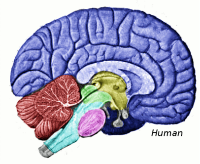Getting Smarter About Renewable Energy
A reader asked for my opinion on this article in RealClearScience, a well-written and innocuous primer on renewable energy.
The premise: “keep pushing, but push smarter” is hard to argue with. I’m reminded of people who caution “Be careful!” when someone trips or bumps his head. Being careful (as opposed to careless) is always good advice, but, since people don’t injure themselves deliberately, such statements really don’t add much value after an accident. The situation is the same in renewable energy, i.e., no person or agency invests in technology that they know in advance to be a loser.
The article does point out a few things that are of practical importance, even if they aren’t exactly news. E.g., the long-term subsidies for oil generate enormous investor confidence, in stark contrast to the here-today-gone-tomorrow support for clean energy that has investors running away as fast as their legs will carry them. Another correct assertion: fossil fuels come with externalities that need to be considered in our discussions on cost.
The concept that we need to get smarter about renewables is completely noncontroversial, but what remains in doubt is society’s willingness to make the tough calls — starting with some of the issues we’ve been discussing here. In particular, if there is any sincerity whatsoever in our desire to see alternative energy in our future, it will begin by manifesting itself in a level playing field on which to evaluate the relative merits of all approaches to energy.


Per the article, “For the foreseeable future, renewable power is likely to supplement, not supplant, conventional energy.” Also per the article, we are unlikely to get more than 10% of our electricity from wind and solar by 2035. That is not enough.
It should be noted that France went from zero nuclear power to 80% nuclear power in 20 years. Thus, France expanded nuclear power many times faster than the article states that wind and solar could be expanded.
Although the article recognizes that the intermittent nature of wind and solar remains a problem, and suggests storage solutions, it recognizes that the solutions are not yet available.
The article said 30% of subsidies went to the bank, then at summary said Solar/Wind can only work if it did not “Break the Bank ” to do so. I think if we forget the Bank and its no working leaches and put all efforts into Power Generation not keeping power in the status quo (banks).
Greg Chick